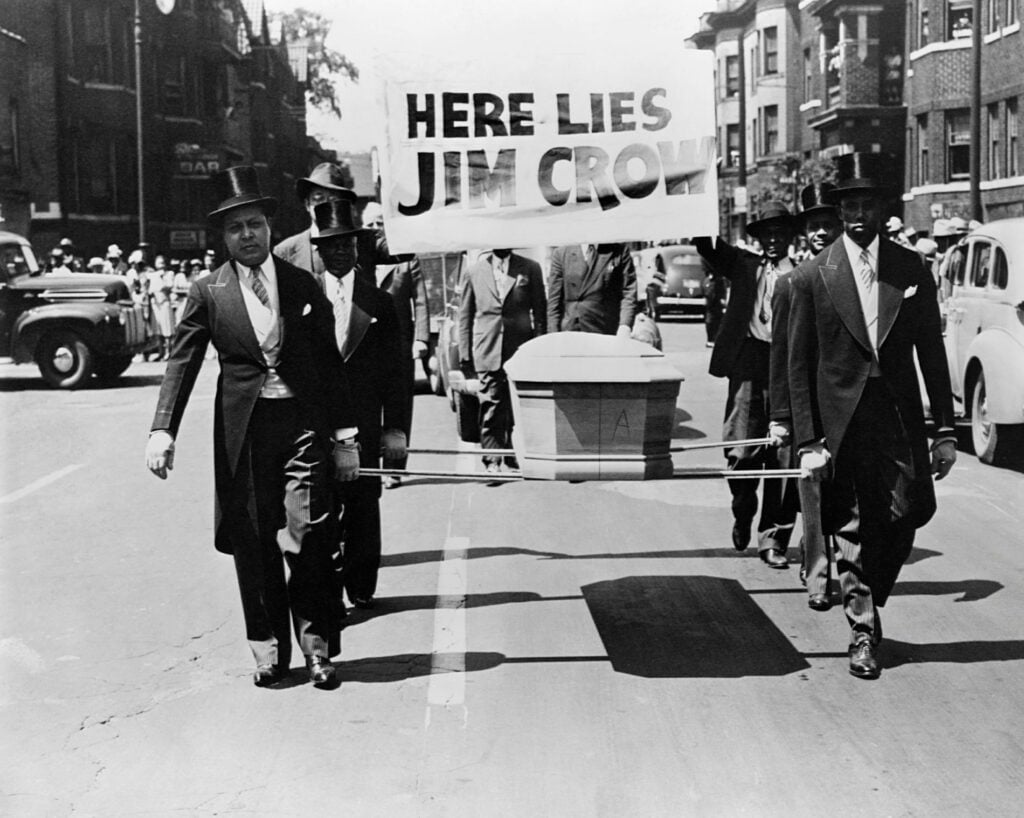African Americans have long been demanding equality. With the 13th Amendment’s ratification, the establishment of the Black Codes followed. The prevalence of Jim Crow-perpetuated racial discrimination came to a peak in the 20th century during the increased lynching of people of color.
With roots dating back to the 1860s, the Jim Crow laws legalized racial segregation and continuously oppressed African Americans for an estimated 100 years.
The Origins of the Jim Crow Laws
Jim Crow laws legalized segregation restrictions based on race. With Jim Crow violators often met with punishments of death, physical abuse, imprisonment, fines, and apprehension, these laws existed for the sole purpose of oppressing African Americans.
The origins of the establishment of Jim Crow laws date back to the 1860s. After the sanctification of the U.S. Constitution’s 13th Amendment that terminated slavery, black codes followed suit. Black codes entailed details of when and where can previously enslaved individuals work, including reimbursement.
In truth, black codes became a legal facade to restrict African Americans from practicing suffrage while controlling their travels and using their children for labor. In addition to that, former Confederate soldiers that now had the role of judges and police ensured the discrimination of African Americans through the strict enforcement of the black codes.
The usage of Jim Crow laws eventually spread to the rest of America as African Americans moved to different cities to liberate themselves from the oppressive regulations, making white city folks seek more restrictive rules for the Black populations. (Source: History)
The Racial Boundaries in World War I
The deployment of African American troops in France threatened most white American soldiers. The warm welcome that greeted the African American troops vastly contrasted the racial discrimination they faced in America. As French soldiers socially interacted with African Americans, white Americans remained agitated as they repeatedly established racial segregation on military bases with “Whites Only” signs and instilled curfews.
White Americans took action, and soon, a memo signed by Colonel J.L.A. Linard of the American Expeditionary Force Headquarters emerged. The statement expressed that Black soldiers were treated with excessive familiarity and indulgence.
Additionally, investigations occurred as discriminative rumors described African American soldiers as lazy and threatening to women. The refutation of these claims followed as these accusations were heavily exaggerated.
When World War I came to its endpoint, 171 African American soldiers accepted the French Legion of Honor as generals praised the competence of African American units. (Source: Slate)
The Supposed End of Jim Crow
All places ensured race-based segregation, from entrances and bathrooms to cemeteries and residential homes. The oppression induced by the Jim Crow laws peaked during the 20th century as the lynching of people of color became more prevalent, arousing the need for numerous race riots.
With the long-spanning and consistently increasing civil rights movements of African Americans that continuously sought the abolition of the Jim Crow laws, Jim Crow finally met its end in 1964. With that said, the removal of Jim Crow-induced segregation didn’t ensure the death of racial oppression as it remains prevalent even in current times. (Source: History)
